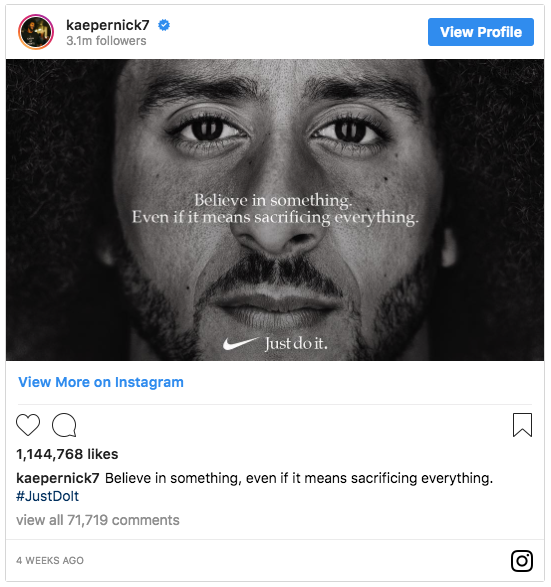Customer trust is the currency of good business and marketing, and yet these days it is one of the things many businesses lack. Do you know if you have the trust and loyalty of your customers?
Estimated reading time: 5 minutes, 21 seconds
The trust deficit between businesses and customers continues to increase. For businesses to succeed and grow, they must assess trust and create, capture and capitalise their trust assets. Megan Brownlow, the entertainment and media industry leader of PwC Australia, says that “companies that get the consumer trust piece right will take it to the bank and boost investor and regulator confidence.”
Trust is more complex than you think
How does a company lose and regain their customer’s trust? How does a company know that they don’t have their customer’s trust or loyalty?
Firstly, trust is different in different businesses. Fast-moving consumer goods (FMCG) businesses, such as Pick n Pay, have not only earned brand trust from their customers, but also have to earn additional trust in their products.
It’s more difficult to build and maintain trust in service-based companies. For example, customers entrust banks with their money and financial wellbeing, and the customers’ values are a big part of why they decide to trust a service-based company. Specifically, customers like to work with companies where they feel their values align. For example, the KPMG scandal not only had negative consequences on the company’s reputation but for the whole auditing industry, as customers saw that the ethics they expected were no longer being met. A scandal like that can be difficult to come back from, however not all controversy results in losing trust.
Recently, Nike caused a lot of controversy with their new ad with American football star Colin Kaepernick. Kaepernick has become a national figure when he chose to kneel during the US national anthem in protest against racial injustices. The ad focused on doing what you believe in, even if you stand alone and it is very true to Nike’s brand values. However, their shares hit a new record sales despite this. Trust was not lost, but an alienation of some people occurred. Nike stood true to their values as a company, understanding that not everything is going to appeal to everyone, but it won’t break the overall trust their customers have in their company.

Trust and friction is like sandpaper
Having a negative brand experience is one of the main culprits of a trust deficit between companies and consumers. For example, I was a loyal customer of a certain bank for a number of years until they failed to help me obtain a bond for my first house. I told them that a competitor of theirs was willing to offer me a better interest rate, yet they did nothing with this information - showing me that they had little interest in keeping me as a customer.
This personal experience shows the importance of your customers’ trust in your company, if you lose it, you run the risk of losing their loyalty as well, as trust and loyalty go hand-in-hand. Customers are more likely to keep their trust in your company and its products and services if their problems are resolved quickly, as trust and friction also go hand-in-hand. Enough friction, such as product issues, and poor customer service, will break the trust your customers have in your company.

To overcome this, the inbound methodology is clear that you need to become customer-centric; providing efficient solutions for the customer’s goals and challenges. The easier and more efficient the service or solutions are, the greater the trust becomes too.
Co-founder of FE International, Thomas Smale, gives five strategies to make consumers trust your company:
- being accessible,
- having a reliable product or service,
- maintaining consistency,
- being honest,
- bringing value to your client. Bringing value to your client is an important part of the inbound methodology and it’s not surprising that it is one of the ways a company can build customer trust.
Listen up
Another way to overcome the trust deficit between companies and consumers is for companies to listen to their customers. Businesses and brands that listen to their customers’ concerns, reviews, complaints and compliments have a better chance of gaining or regaining their trust if they not only implement suggestions but take it a step further. For example, there was a need for a banking app in South Africa a few years ago. When First National Bank (FNB) launched the first banking app, they took it a step further by having the app still function without needing the user to have cellphone data.
Word-of-Mouth still has all the power
When it comes to the data - how do you analyse if you have your customer’s trust? You don’t have look further than the customer reviews and responses. Even though online reviews are slightly superficial, they are still immensely influential. Service-based companies such as Uber and Airbnb are based on continuous trust transactions between the customer and the company, and even though customers get rated by the service provider, the customer review holds the most weight. They remain the most trusted resources for consumers’ trust.
Although many companies use celebrities as their brand ambassadors to endorse their products and services, many customers trust fellow customer reviews more as they are not being paid to promote any brand’s service or product.

The power of social media on trust
Social media is an easy way for a company to lose the customers’ trust. People are quick to tweet or post on Facebook about a bad experience they had with a company, influencing their friends, family and colleagues. A brand doesn’t always need to respond to heavy negative social media if their community of loyal customers supersedes the negativity. This can be seen across an number of brands and products, one that sticks out for me is the Suzuki Jimny. If someone makes posts a negative comment about the Jimny the loyal fan base set them straight before the brand even has a chance to react.
This is dependent on brand authenticity and sticking to brand values that the community aligns with. Nike is a good example of this, where although it came under a lot of controversy, a large portion of its customers praised them for their ad with American football quarterback Colin Kaepernick.
With the rise of customers being more empowered and educated, losing the trust of your customers is more likely to happen. If your company is not transparent, authentic, or doesn’t listen to their customers to bring more value, you’re going to lose their trust and loyalty.

Part of ensuring your customers trust you and reducing friction is ensuring you’re offering the same experience across platforms. Download our Guide to Inbound Touchpoints for some tips on how to do this.

Want to keep up to date of all industry news, trends and learnings? Subscribe to our blog and never miss a post.
